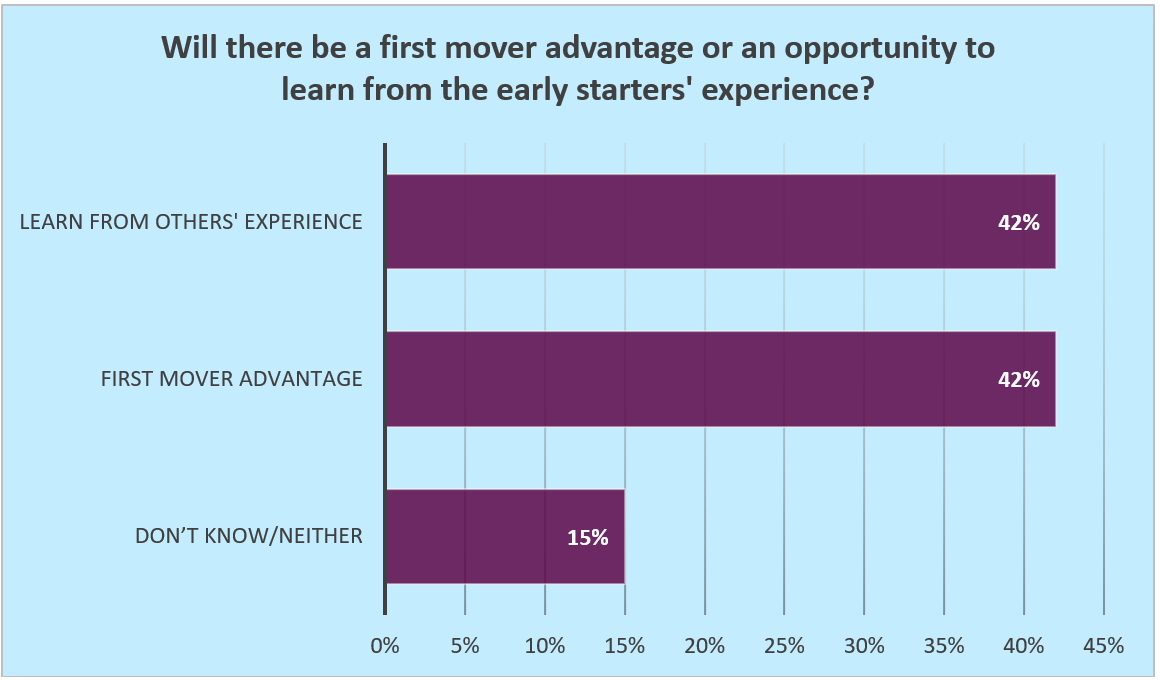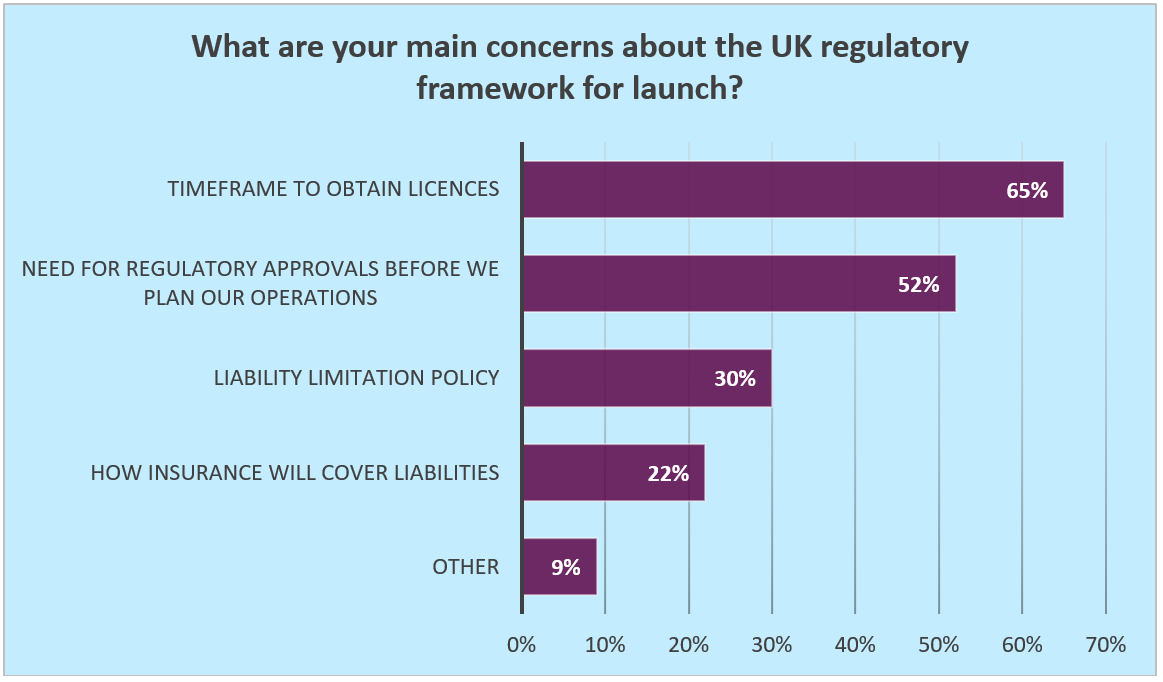Locations
Launch and spaceport operators' assessments of the opportunities for smallsat launch from UK soil, and some of the regulatory challenges, are highlighted in Fieldfisher's latest Space Business webinar.
Our panellists, connected with the spaceports in Newquay, Sutherland and the Western Isles, discussed how they see the market developing over the next few years. With help from our audience, they assessed the importance of being first to market as well as the key obstacles for those hoping to win a slice of this new market.
Time to launch: a first mover advantage?
With likely timescales for their own operations ranging from the middle of 2022 to early 2024, our panellists represented those likely to benefit from first mover advantage, as well as those aiming to learn from the others' experiences. Interestingly, industry delegates were divided on which position is preferable, as shown by the poll below.

All this suggests that time to first launch may not be the ultimate determining factor in market success. While the panel stressed the importance for the UK market of keeping ahead of competitors elsewhere in Europe, the value of each operator's offering will derive from its commercial proposition and consistency of service. So providers will be focussed on offering a reliable launch opportunity at the right price.
UK government's role
Looking at the role of UK government in developing a long-term launch sector, our panellists flagged the value of the UK government as a key customer for civil/ scientific and military launches. In our April 2021 Space Business webinar, Graham Turnock, CEO of the UK Space Agency commented that the government's institutional role in space business is being reviewed as part of the UK national space strategy and it is clear that industry is keen to see greater support in this area.
The UK regulatory framework: some challenges
Given the significance of the regulatory framework for the launch and spaceport industry, we asked delegates to identify their main concerns in this area.

The timeframe to obtain licences was identified as the most significant concern of our audience. Industry players will need to apply for one or more of three licences: a spaceport licence; a launch service provider licence; and a range services licence. The ability to obtain these licences as efficiently as possible will be critical in delivering a launch rapidly, so it is understandable that this is seen as a high priority issue. Other licensing concerns included the amount of effort required to obtain the licences and the risk that licence fees could be prohibitive where they are based on cost recovery for the regulator.
Second place went to the uncertainty of the requirements for regulatory approvals and when these will become clear. Our panellists agreed that it is vitally important that the licences are in place early enough to provide adequate time to plan operations prior to launch. Enabling operators to have early visibility of the requirements for operation and safety will be critical – both regulators and applicants will need to be agile and pragmatic in their approach to the process.
Nearly a third of delegates saw challenges in the government proposal that liability caps will only be confirmed at the licensing stage, rather than being set out in law. This presents a concern for launch and spaceport providers who will not know the applicable caps prior to having to commit significant financial investment to prepare a licence application. Panellists also flagged a need for varying caps for different classes of satellite, reflecting the different economics of these missions.
Just over 1 in 5 of our delegates viewed the issue of how insurance will cover liabilities as a significant concern. However, the fact that the applicable liability caps will only be known at the licensing stage presents a difficulty in obtaining appropriate insurance: until the liability cap is known, an appropriate policy cannot be produced. While policies can often be provided relatively quickly, using a new launch vehicle from a new spaceport or launch provider may well require additional time. On the positive front, there is clear encouragement from the regulators for applicants to engage in discussions early, so ideally the insurance coverage requirements will be known, and policy coverage can be crafted, in good time before launch.
Our special thanks go to our panel of: Philip Davies, Strategy Director at Deimos Space UK; John Paffett, MD KISPE and Interim Commercial Director at Spaceport Cornwall; Mark Roberts, RHEA Group and Project Director at Spaceport 1; and Akiko Hama, Client Executive Space and Aerospace at Global Aerospace.
Chairman of the webinar, John Worthy, partner and head of Satellite and Space Projects at Fieldfisher, commented: "As the launch opportunities develop in the UK, it is clear that the regulatory challenges and contractual issues will be a high priority item for all operators. Spaceports, launch providers and range services operators will be working with their advisors and with regulators to ensure that the licence terms are clear and appropriate, as well as checking that the regulatory and contractual risk elements are managed effectively. Ensuring that the licence and insurance responsibilities are effectively flowed through their contract terms and supported by appropriate risk allocation will be a key part of the preparation for launch operations".
Look out for details of the next Fieldfisher Space Business webinar soon.


